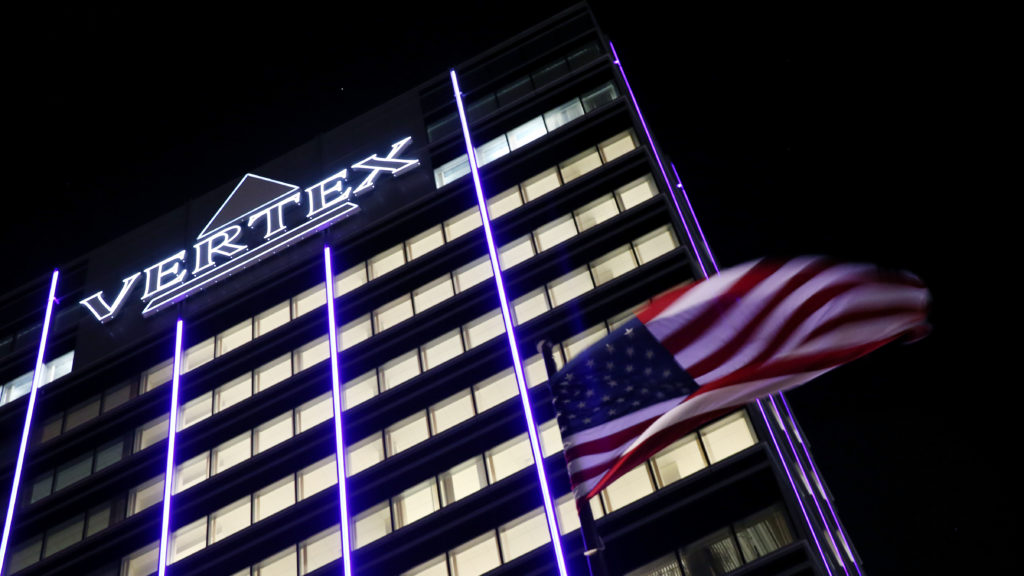Want to stay on top of the science and politics driving biotech today? Sign up to get our biotech newsletter in your inbox.
Hey there. Today, we talk about how biomanufacturing is getting a huge boost in North Carolina, study a new potential root for autoimmune disease in women, and more.
advertisement
The need-to-know this morning
- Bristol Myers Squibb reported fourth quarter and 2023 earnings. For 2024, the company said it expects total sales to increase “low single digits” from $45 billion in 2023. Current Street consensus has Bristol growing sales 2%.
- More earnings: Regeneron Pharmaceuticals and Abbvie.
What makes a blockbuster?
Can biotech learn from Aduhelm? And how do you replace a singular regulator? We cover all that and more this week on “The Readout LOUD,” STAT’s biotech podcast.
We explain the debate over Vertex Pharmaceuticals’ novel pain drug, whose success in clinical trials comes with a sizable caveat. We also talk about the latest news in the life sciences, including an epitaph for Aduhelm and the retirement of an FDA icon.
advertisement
North Carolina’s biomanufacturing outpacing Boston
Move over, Boston. Billions of dollars are being poured into North Carolina’s biomanufacturing infrastructure: There are now 2.5 million square feet of new research and development and advanced manufacturing facilities just ten minutes from the Raleigh airport. The aim is to make this place North Carolina’s hub for making prescription drugs.
It’s much less expensive to build technical campuses to grow biotech production capacity. For instance, electric rates for industrial users are less than half the cost in North Carolina compared to Massachusetts. And construction workers in the Boston area earn $47 per hour, compared to $33 per hour in North Carolina. Housing is far more affordable as well.
“You can do onshoring and locate a facility in a high-quality location around Raleigh-Durham,” one site selection expert said. “And almost every major factor is going to be less expensive than Boston.”
A hint to the root of autoimmune disease in women?
Researchers are homing in on an explanation for why women are more likely to develop autoimmune disorders than men. In mice, Stanford scientists found that an RNA molecule called Xist helps prevent female cells from activating both sets of their X chromosome genes, which would be deadly. These molecules can trigger antibodies to latch onto RNA and its protein counterparts. Male cells don’t typically express Xist.
When the researchers looked at blood samples from healthy adults and patients with autoimmune diseases typically seen in women, they found that the latter group was more likely to have antibodies that recognized Xist-protein complexes. This offers potential for new ways to monitor or treat autoimmune disease.
“This is like a completely different and novel explanation for female bias in immune disease,” the study’s senior author told STAT. “What our study really showed was that it’s not just the second X chromosome, it’s actually a very special RNA that comes from that second X chromosome, and just that RNA perhaps plays a major role.”
Studying Arena BioWorks’ model
With deep pockets and an even deeper talent pool, Arena BioWorks offers a compelling new approach to biological innovation. But it remains to be seen whether throwing a ton of money at a select few accomplished scientists is an effective and efficient way to produce fast scientific results, opines Paula Stephan, a researcher at the National Bureau of Economic Research. Since it will be funding high-risk, high-reward research outside of the university setting, it’ll be important to study it closely.
“I strongly encourage Arena to invite social scientists to study their model with the goal of seeing the extent to which it fosters innovation and if so, what parts of the model might be transferable to other research settings, including the university,” she writes.
More reads
- Medicare has different standards than the FDA. That’s how it should be, STAT
- After Eisai retirement, Ivan Cheung is back to lead Massachusetts biotech, FierceBiotech
- Ad firm Publicis, drugmaker Hikma settle U.S. opioid cases for $500 million, Reuters

